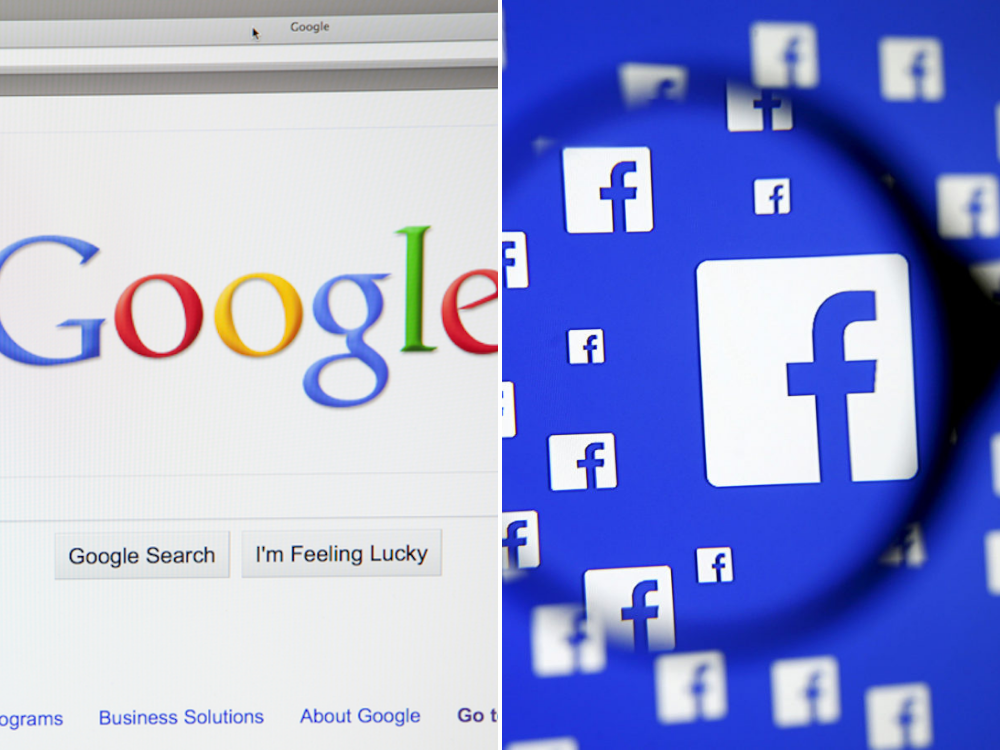
Nine in ten local newspaper editors in the UK believe Google and Facebook pose an “existential threat” to local journalism and want legislation forcing them to pay for news.
A survey of 57 editors carried out by the News Media Association in September also found that half believed the Covid-19 pandemic was having a damaging effect on press freedom.
Some 89% of the editors urged the Government to follow in Australia’s footsteps and take action to make the tech giants pay for the local journalism on their platforms.
The same number said the Duopoly’s business practices, which include hoovering up the vast majority digital advertising revenues and changing algorithms with little or no notice, pose a profound threat to the sustainability of local journalism.
Of around £14bn spent on digital ads in the UK in 2019, 80% was earned by Google and Facebook. UK national and local news websites took just 4%, according to the NMA.
NMA deputy chief executive Lynne Anderson said: “Local editors have issued a stark warning to Government; act now to curb the tech giants or place the future of local journalism – which has served the public so effectively during the pandemic – at risk.”
A Press Gazette poll carried out between 17 September and 5 October found that 71% of 1,108 readers want governments to intervene and force Google and Facebook to pay for news – indicating this feeling may be even stronger among local editors than in the industry as a whole.
The Australian Competition and Consumer Commission published a first-of-its-kind draft code of conduct in July that would force the tech giants to negotiate with publishers over fair payment, with an arbitrator stepping in where necessary to ensure an agreement is made.
Mandatory standards would also be introduced, meaning platforms would have to give news media more information about algorithm changes and power over their pages by, for example, turning off comments on individual Facebook posts.
The ability to turn off comments would be attractive to many local editors, some of whom were forced to delete Facebook posts about the Black Lives Matter movement this summer after they were plagued with abusive and racist responses.
Nottinghamshire Live editor Natalie Fahy expressed frustration on Twitter, saying: “…when you’re faced with 1,000+ comments, complaints and one person only to deal with all that, we have to unfortunately restrict where we are sharing our stories. Facebook still won’t let pages turn comments off”.
The NMA’s survey also found that 46% of local editors believed the Covid-19 pandemic has had a negative effect on press freedom.
Some 49% have encountered public bodies using coronavirus as an excuse to withhold information they felt should be in the public domain, while 47% said getting information from authorities such as councils or police forces had become more difficult.
The survey also indicated the importance of local journalism, with 68% of editors seeing audience increases since January, 55% seeing more engagement, and 70% saying they or their journalists had corrected misinformation spread about Covid-19 on social media.
Yet more than a third (36%) of editors have seen abuse of themselves or their journalists increase during the pandemic. Half (51%) said the levels of abuse had stayed the same.
Picture: Reuters/Dado Ruvic/Illustration/File Photo
Email pged@pressgazette.co.uk to point out mistakes, provide story tips or send in a letter for publication on our "Letters Page" blog
